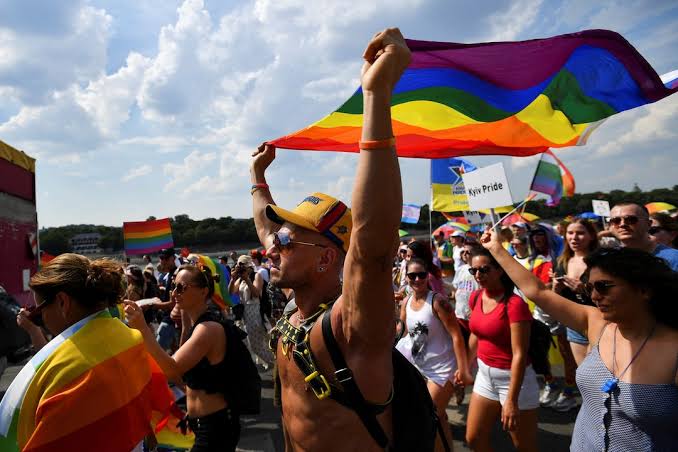Hungary’s ruling party presented a legislative proposal to parliament on Monday aimed at prohibiting the Pride march organized by LGBTQ+ communities, which has been a tradition in Budapest for thirty years. The bill also seeks to impose penalties on both the event’s organizers and attendees.
In recent weeks, Prime Minister Viktor Orban has openly criticized LGBTQ+ individuals and has committed to tightening regulations on foreign funding for independent media, opposition politicians, and NGOs in Hungary, intensifying his campaign as elections approach early next year.
Orban, a nationalist facing an unprecedented challenge from a rising opposition party, has increased his rhetoric against the media and LGBTQ+ communities since the inauguration of U.S. ally President Donald Trump.
The legislation proposed by his Fidesz party justifies the ban on Pride by claiming it may be detrimental to children. According to the bill, it amends the law regarding the right to assemble, stating that gatherings violating the child protection law are prohibited.
Additionally, the bill allows law enforcement to utilize facial recognition technology to identify individuals attending the event, where participants typically march along Andrassy Avenue, a prominent street in Budapest’s city center.
Orban has suggested that organizers should not even attempt to hold the event this year. In response, festival organizers, who assert that the event poses no risk to children, emphasized that the right to assemble is protected by the constitution.
As of Monday, Pride organizers had not provided immediate comments.
See more: Judge to hear arguments to pause inquiry into British killer nurse Letby
In power since 2010, Orban advocates a Christian-conservative agenda and enacted a law in 2021 banning what is termed the “promotion of homosexuality” among minors, despite significant backlash from human rights organizations and the European Union.
The government argues that its policies, which resonate with Fidesz’s core rural voter base, are designed to safeguard children. The 2021 legislation has generated concern among gay, bisexual, and transgender individuals in Hungary, leading the European Commission to refer the matter to the EU’s Court of Justice in 2022.





